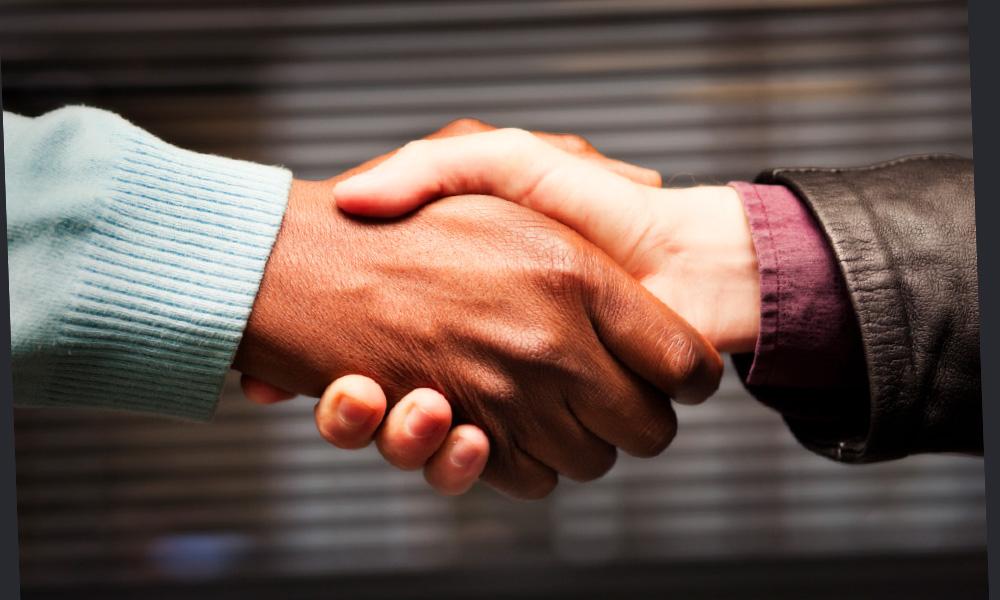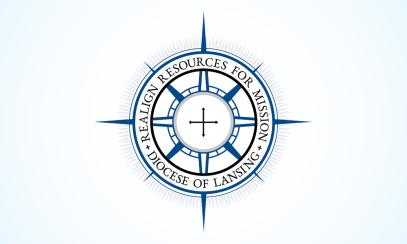
A Spotlight on Racism
“Now, and every day, we must pray to find the strength to do what is right and just as we encounter our neighbors from a culture, country, religion, race, or experience different than our own and see in them God’s creative design.”
– Washington Archbishop Wilton Gregory, May 31
“We join our brother bishops to challenge everyone to come together, particularly with those who are from different cultural backgrounds. In this encounter, let us all seek greater understanding amongst God’s people. So many people who historically have been disenfranchised continue to experience sadness and pain, yet they endeavor to persevere and remain people of great faith. We encourage our pastors to encounter and more authentically accompany them, listen to their stories, and learn from them, finding substantive ways to enact systemic change. Such encounters will start to bring about the needed transformation of our understanding of true life, charity, and justice in the United States. Hopefully, then there will be many voices speaking out and seeking healing against the evil of racism in our land.”
Issued as the Church prepared to celebrate Pentecost, the bishops called upon “all Catholics to pray and work toward a new outpouring of the Holy Spirit. Let us pray for a supernatural desire to rid ourselves of the harm that bias and prejudice cause. We call upon Catholics to pray to the Holy Spirit for the Spirit of Truth to touch the hearts of all in the United States and to come down upon our criminal justice and law enforcement systems. Finally, let each and every Catholic, regardless of their ethnicity, beg God to heal our deeply broken view of each other, as well as our deeply broken society.”
– The statement was issued by Bishop Shelton J. Fabre of Houma-Thibodaux, chairman of the Ad Hoc Committee Against Racism; Archbishop Nelson J. Pérez of Philadelphia, chairman of the Committee on Cultural Diversity in the Church; Archbishop Paul S. Coakley of Oklahoma City, chairman of the Committee on Domestic Justice and Human Development; Archbishop Joseph F. Naumann of Kansas City in Kansas, chairman of the Committee on Pro-Life Activities; Bishop Joseph C. Bambera of Scranton, chairman of the Committee for Ecumenical and Interreligious Affairs; Bishop David G. O’Connell, auxiliary bishop of Los Angeles, chairman of the Subcommittee on the Catholic Campaign for Human Development; and Bishop Joseph N. Perry, auxiliary bishop of Chicago, chairman of the Subcommittee on African American Affairs.
U.S. Bishops Receive Call of Encouragement and Assurances of Prayer from Pope Francis
On June 3, Archbishop José H. Gomez of Los Angeles, president of the U.S. Conference of Catholic Bishops, received a call from Pope Francis, where the Holy Father expressed his prayers and closeness to the Church and the people of the United States in this moment of unrest.
Archbishop Gomez shared this news with the U.S. bishops in the hope that they could take comfort and gain strength in the Holy Father’s encouragement. Pope Francis expressed his gratitude to the bishops for their pastoral tone in the Church’s response to the demonstrations across the country in their statements and actions since the death of George Floyd, and assured the bishops of his continued prayers and closeness in the days and weeks ahead. He expressed special prayers for Archbishop Bernard A. Hebda and the local Church of Saint Paul and Minneapolis.
Archbishop Gomez, on behalf of the bishops’ conference, conveyed gratitude to the Holy Father for his strong words of support and, in turn, assured the Holy Father of their prayers.
CATHOLIC SOCIAL TRADITION
Here are a few relevant themes at the heart of our Catholic social tradition:
- Life and Dignity of the Human Person: Human life is sacred and the dignity of the human person is the foundation of a moral vision for society. We believe that every person is precious, that people are more important than things, and that the measure of every institution is whether it threatens or enhances the life and dignity of the human person.
- Option for the Poor and Vulnerable: A basic moral test is how our most vulnerable members are faring. In a society marred by deepening divisions between rich and poor, our tradition recalls the story of the Last Judgment (Matthew 25:31-46) and instructs us to put the needs of the poor and vulnerable first.
- Solidarity: We are one human family, whatever our national, racial, ethnic, economic, and ideological differences. We are our brothers and sisters keepers, wherever they may be. At the core of the virtue of solidarity is the pursuit of justice and peace.
|
|



